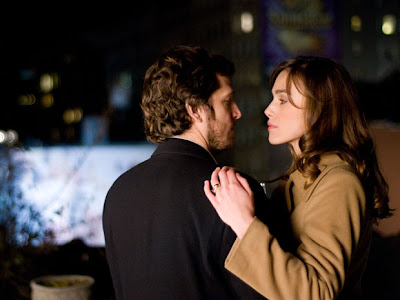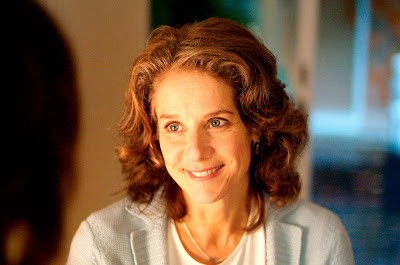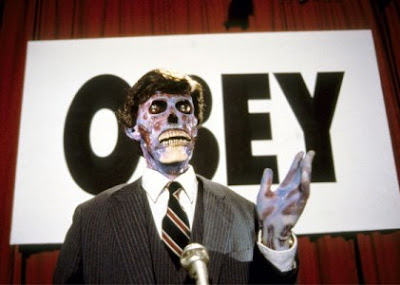
---the new golden
age of the documentary, by Sean O'Hagan:
"I really do think we are living in a golden age of documentary film-making," says Walker, over the phone from Los Angeles, where she is currently on a frantic promotional schedule. "There is a frustration with traditional media and a hunger for documentaries that have the stamp of integrity. The week it opened, my film was number one at the box office in terms of what they call 'per-screen average attendance'. Of all the movies playing in America, a Portuguese-language documentary about the lives of people living on a garbage dump in South America had the highest per-screen average across America. That tells me that people are looking for bigger truths about the way we live now, truths they are not getting from Hollywood or the traditional media."
To a degree, this has always been the case, but today, with the coming of affordable high-end digital camera and laptop technology, it is possible to prep, shoot and edit your own film in a fraction of the time – and the budget – it would take to make a traditional film. In many ways, cheap technology has energised film-making for a fast-forward generation who have little time for the slowness of traditional script-based film-making. "I've been in development hell for four years for a fiction film that never got made," says Walker, bullishly. "I don't have that kind of time to waste. I want to get on and make films that I think need to be made."
---Karina Longworth and
The Big Lebowski
---America, a superpower in
decline and yet Americans can still
stand out confidently in a crowd
Carlson has Seattle roots at Scarecrow Video (one of the largest video rental stores in the country, possibly the world), which aided and abetted his and Connolly's lunatic dream to catalog not just punk rock movies but
every single movie with a punk in it. From the beloved "Punk on Bus" in
Star Trek IV: The Voyage Home (he receives the dreaded Vulcan death grip from Spock for public obnoxiousness) to the runaways of Penelope Spheeris' classic slice of SoCal disaffection,
Suburbia, every punk rocker, real or fauxhawk, who ever appeared in a movie from 1974 to 1999 is noted in a capsulized review/commentary, with accompanying artwork (in the classic punk shades of black, white, and hot pink). Accompanying the reviews are tons of interviews with directors and punks/actors (
Rock 'n' Roll High School's Allan Arkush, Spheeris, Kirk "Punk on Bus" Thatcher, Clint Howard), all primed and loaded by Richard Hell's fine introduction.
Destroy All Movies!!! is more than a reference book for the Mohawk-obsessed: It's a feat akin to taking your shitty punk rock band on a world tour in a crappy '72 Ford Econoline circa 1983. Hard work, but man, when you're done you know you've really been somewhere."

---"
Z-Channel: The Uncommon Denominator" by FX Feeney
---there's something fishy about this Brian Eno
interview
---James Ellroy
shapes his noir persona:
But the more powerful subtext of the book describes Ellroy’s lifelong quest to become a serious writer. As a child, he began to develop the habits and compulsions that could have made him either a criminal or a novelist: “I loved to read, brood, peep, stalk, skulk, and fantasize”. His first literary model was Mickey Spillane, his father’s favourite writer. Then, as he said in a Paris Review interview, “I began to read mystery books: the Hardy Boys, Ken Holt. My father would buy me two of these things a week. I could read the damn books in four or five hours. I started stealing them when I was ten years old”. After his father’s death in 1965, Ellroy dabbled in petty crime but also read obsessively in public libraries, stoking his energies with Benzedrex inhalers. He was always thinking, he told the Paris Review, “how I would become a great novelist. I just didn’t think that I would write crime novels. I thought that I would be a literary writer, whose creative duty is to describe the world as it is. The problem is that I never enjoyed books like that. I only enjoyed crime stories. So more than anything, this fascination with writing was an issue of identity. I had a fantasy of what it meant to be a writer: the sports cars, the clothes, the women.”

---a 1978
seminar with Steven Spielberg
---Jonathan Lethem
explains They Live (1988):
"Holly, played by Meg Foster, enters story and frame in an explicitly Hitchcockian shot, derived from the opening of "Marnie" particularly: walking away from a worm's-eye view, our sense of receding perspective enhanced by her framing in the center of the pillar-and-beam architecture of a parking garage. A neat pale-gray purse and matching heels, plus Foster's hypnotically smooth stride, complete the reference.
Nada's lurking in the garage. Improvising a plan to convey himself out of the bank's vicinity, he'll carjack Holly, making her the last arriving of the film's major characters. Here, "They Live" slows, to give the two a chance to make their pensive, peculiar connection -- a truth-sinking-in interlude for both Nada and the viewer -- and to tempt us briefly with notions of solace, exchanged confidences, even romance. But it's to be a wrong number, in the end.
There's a tenacious movie archetype afoot in this next six minutes of film: the persecuted (usually wrongly accused) man who attaches himself to or absconds with an unwilling female, who then finds herself challenged to evaluate his protestations of innocence, and/or the credibility of the paranoiac plot he claims to be the target of. The point of origin is probably "The 39 Steps" (1935); if some earlier denominator exists, credit for conveyance of this narrative gesture into the filmgoer's imaginative stockpile surely goes to Hitchcock anyway, and he reuses it, with variations, in "Young and Innocent," "Saboteur," and "North by Northwest." (Even "Rear Window" has an element of paranoid-guy-pleads-his-case.)"
---the welcome
return of Debra Winger (one of Pauline Kael's favorite actresses)
---Courtney Love, fashion
icon
---an
interview with Berkeley Breathed of
Bloom County
---lastly, "Borrowing Culture in the
Remix Age"





Comments
The speech is short even in comparison with speeches today - but back in the days of three-hour orations, Lincoln must have flabbergasted the whole audience.
- Dexter DeLima